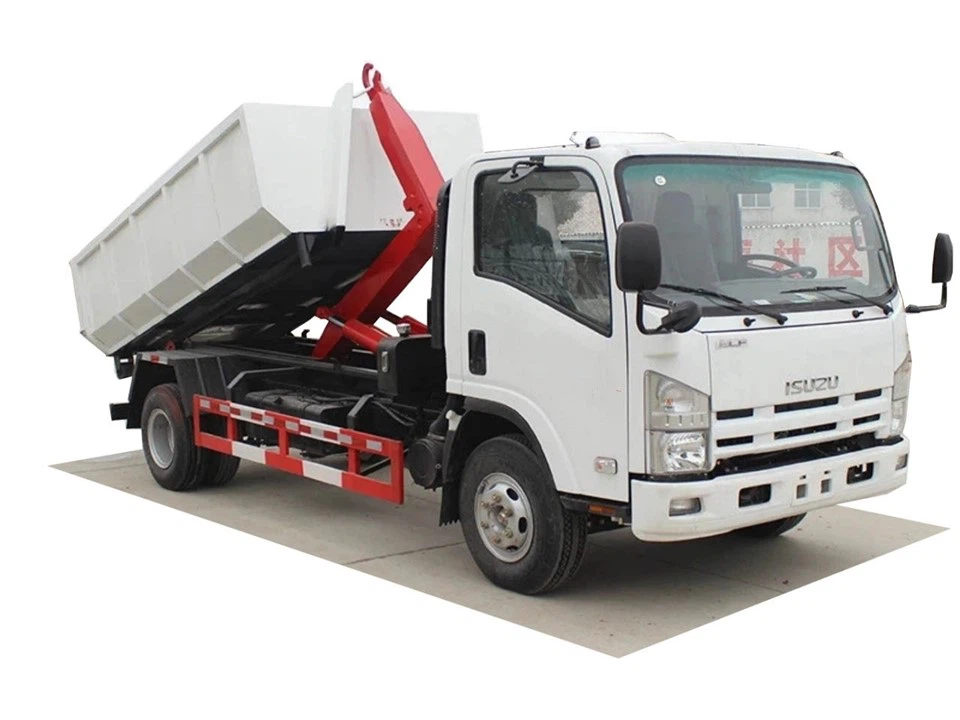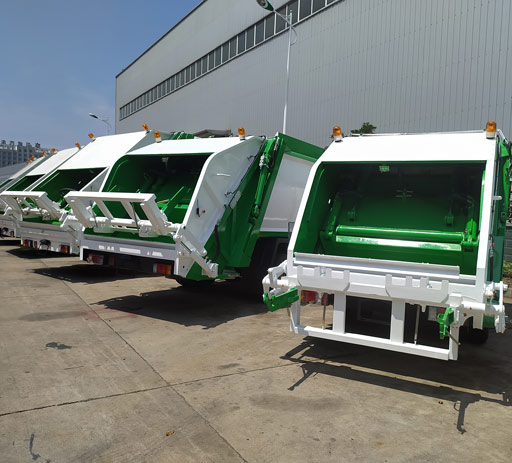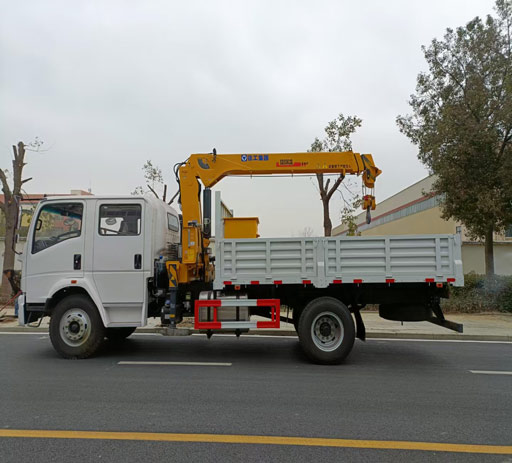Understanding the Small Tanker Truck: A Comprehensive Guide

Introduction
Small tanker trucks play a crucial role in various industries, transporting liquids such as fuel, water, chemicals, and other essential materials. These specialized vehicles vary in size, capacity, and design, tailored to meet the specific needs of different sectors. In this article, we will explore everything you need to know about small tanker trucks, including their types, benefits, operational guidelines, maintenance tips, and more.
What is a Small Tanker Truck?
A small tanker truck is a vehicle designed to carry liquids in a tank mounted on the chassis. These trucks are typically smaller than their larger counterparts, making them ideal for urban settings, tight spaces, and deliveries that require more maneuverability. The capacity of small tanker trucks generally ranges from 1,000 to 5,000 gallons.
Key Features of Small Tanker Trucks
- Size and Capacity: Usually between 1,000 to 5,000 gallons.
- Tank Material: Constructed from materials like aluminum, stainless steel, or carbon steel.
- Pump System: Equipped with various pumping systems for efficient loading and unloading.
- Safety Features: Includes anti-rollover designs, leak-proof seals, and emergency shut-off systems.
Types of Small Tanker Trucks
1. Fuel Tanker Trucks
Designed specifically for transporting gasoline, diesel, and other fuels. These trucks often come with multiple compartments to carry different types of fuel simultaneously.
2. Water Tanker Trucks
Used for transporting potable and non-potable water. They are commonly employed in construction, firefighting, and municipal services.
3. Chemical Tanker Trucks
Built to carry hazardous and non-hazardous chemicals, featuring specialized coatings and safety measures to prevent leaks and spills.
4. Food Grade Tanker Trucks
Manufactured to transport food products and beverages, constructed from materials that comply with food safety standards.
Benefits of Using Small Tanker Trucks
1. Maneuverability
The smaller size allows for easier navigation in urban environments, making them ideal for tight delivery areas.
2. Cost-Effective
Small tanker trucks generally have lower operational costs compared to larger trucks, making them a budget-friendly solution for small to medium businesses.
3. Versatility
These trucks can be used for various purposes, including emergency response, construction work, and daily logistics.
4. Reduced Environmental Impact
With lower fuel consumption and better efficiency, small tanker trucks can contribute to reduced emissions and a smaller carbon footprint.
Operational Guidelines for Small Tanker Trucks
1. Driver Training and Certification
Operators must undergo specific training to ensure they understand the safety protocols and handling requirements for the materials being transported.
2. Pre-trip Inspection
Drivers should conduct thorough inspections of the tanker before each trip, checking for leaks, pressure levels, and general condition.
3. Load Management
Understanding weight distribution and load limits is crucial for maintaining stability and control during transport.
Maintenance of Small Tanker Trucks
1. Regular Inspections
Establish a routine schedule for inspections, focusing on the tank, pump system, brakes, and safety equipment.
2. Cleaning and Sanitization

Ensure that food-grade and chemical tanks are cleaned and sanitized according to industry standards to prevent contamination.
3. Tire Maintenance
Regularly check tire pressure and tread depth to ensure optimal performance and safety.
4. Engine and Transmission Care
Adhere to the manufacturer’s guidelines for oil changes, coolant levels, and overall engine maintenance.
Practical Examples and Tips
Example 1: Fuel Delivery to Construction Sites
Small tanker trucks can efficiently deliver fuel to construction sites without the need for larger tankers, which may not fit into cramped spaces.
Tip 1: Proper Loading Protocol
Always load the tanker according to the manufacturer’s recommendations to avoid any imbalances that could lead to accidents.
Example 2: Emergency Water Supply
During natural disasters, small water tanker trucks become essential for delivering potable water to affected areas, showcasing their utility.
Tip 2: Emergency Preparedness
Equip small tanker trucks with emergency kits, including first aid supplies, fire extinguishers, and communication tools for any unforeseen situations.
Regulations and Compliance
1. Local and National Regulations
It’s essential to be aware of the regulations governing the transport of liquids, which may vary by location. Compliance with the Department of Transportation (DOT) or local authorities is mandatory.
2. Licensing Requirements
Drivers must hold the appropriate licenses, such as a Commercial Driver’s License (CDL) with endorsements specific to tanker transport.
Future Trends in Small Tanker Trucks

1. Technological Advancements
The integration of GPS and telematics systems is becoming increasingly common, allowing for real-time tracking and data collection.
2. Sustainability Initiatives
As environmental concerns rise, manufacturers are working to create more fuel-efficient and eco-friendly tanker models.
3. Digitalization of Operations
Adoption of digital tools for route optimization and fuel management is on the rise, enhancing operational efficiency.
FAQ Section

1. What is the average capacity of a small tanker truck?
The average capacity typically ranges from 1,000 to 5,000 gallons, depending on the specific vehicle and its intended use.
2. Are small tanker trucks safe for transporting hazardous materials?
Yes, but they must be equipped with appropriate safety features and comply with regulations for transporting hazardous materials.
3. How often should small tanker trucks be maintained?
Regular maintenance should be conducted according to a set schedule, typically every 3,000 to 5,000 miles or as recommended by the manufacturer.
4. Can small tanker trucks be used for food transport?
Yes, food-grade tanker trucks are specifically designed to meet health and safety standards for transporting food and beverages.
5. What should I do in case of a spill during transport?
Immediately notify local authorities and follow the emergency response procedures established by your company, which may include using absorbent materials or containment measures.
